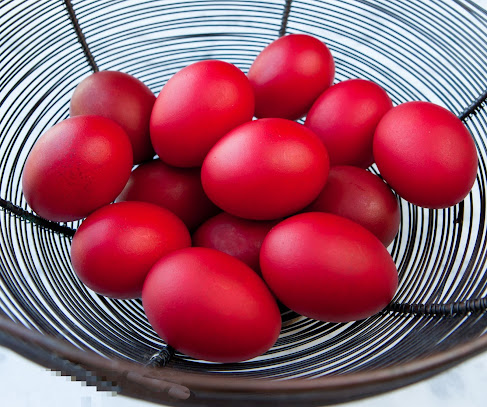That was before my brother D and his wife G gifted us with golden eggs—salted duck eggs from their duck farm that go by the same principle of making red eggs, minus the poison.
Surprised? It shocked me.
Since time immemorial, salted duck eggs are dyed red to distinguish them from fresh eggs.
Now here’s the shocker.
The red dye used by many commercial red-egg makers contain chemicals that cause conditions such as allergies and asthma, plus more. This has been proven in various research in the US and Europe. In fact, some European manufacturers have pledged to eliminate this dye from candy, soft drinks, and similar products.
Red-eggs fans may argue that the dye on the shell does not affect the egg, which is what we ingest. However, since eggshells are porous, there is no telling how much of the red dye seeps through and therefore eaten.
D and G’s golden eggs were dipped in and colored with turmeric (a perennial plant of the ginger family) powder and therefore all-natural.
They taste just as good as the red eggs—maybe even better—we had been used to. But golden eggs such as these are not commercially viable, because turmeric costs so much more than red dye.
This is not a discourse against red eggs. Rather, it is an ode to golden eggs, 100% natural, and therefore, pure grace.
Photo credit: www.cookingspree.com



No comments:
Post a Comment